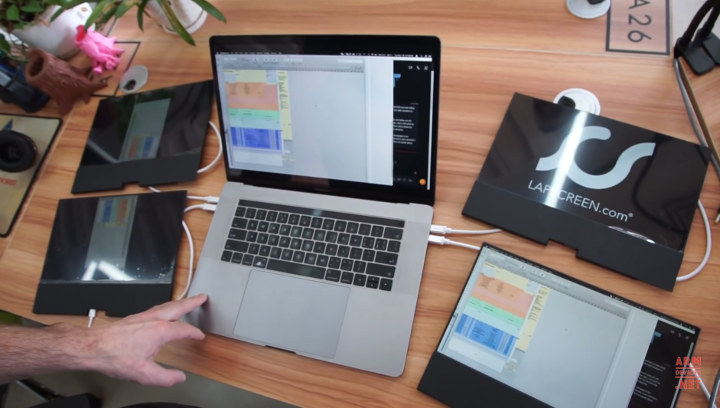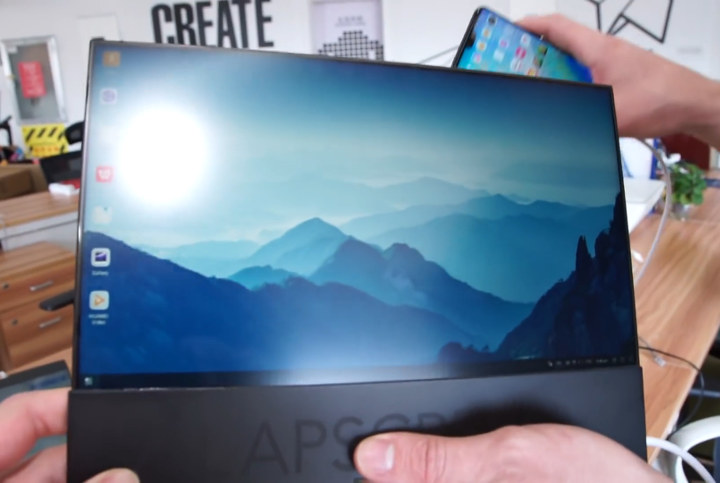If you want to add an extra screen to your laptop, we’ve previously covered DUO add-on display, a full HD 12.5″ display that can be placed on the left or the right of the display, and it was launched via a crowdfunding campaign that ended up being popular with over $800,000 raised from more than 4,000 backers. The display is however 1.2 cm thick and weights 680 grams, which does not seem too bad until you hear about LAPSCREEN.
Developed over several years by Mr. Black (Michél Haese), LAPSCREEN is also a 12.5″ display with Full HD resolution, but it only weights 200 to 300 grams depending on whether you select the non-touch or touch version, and comes with a 4 to 8 mm thickness.

Such displays enable what Michél calls the “portable office”, so you’d have your laptop for example, and if you ever needed four extra screens as shown above it would add less than one kilogram to your bag’s weight with non-touch screen. The displays are all connected to a single new Macbook over USB-C, and everything is powered by a single 60W USB type-C power adapter connected to either one of the displays.
With smartphones getting smarter, as powerful as actual laptops, and getting support for desktop mode, LAPSCREEN would also enable lighter computing with a ~200 grams display, under 200 grams smartphone, couple with a Bluetooth keyboard, and USB-C power adapter, so eventually you could perform productivity tasks with hardware weighting less than one kilogram. A mouse could be added to the setup, or the smartphone could server as a touchpad for the display.
Beside USB type-C, you can also connect any device with HDMI output, and basically any output when using an adapter including DisplayPort, DVI, VGA. or even WiFi via a MiraCast dongle. The display is 12.5″ because it matches US letter length, A4 paper width, and can be carried with other documents, and in folders designed for paper. Another idea behind this concept is also that people would print less since they can check documents on multiple screens, and using either portrait or landscape, but I’m not sure I’m convinced about that part.
The key selling point of the display is clearly its weight, and Michél thinks that ideally people should not need a stand or protective cover that add to the total weight, and instead use the display lying flat on the desk, or be just as careful with the display as you would with important documents. I don’t think I’ll be willing to work with a display lying flat on a table, as it seems uncomfortable, but time will tell. I understand such accessories will still be provided since customers ask for those. You can watch the 26 minutes video showcasing the solution, and Charbax interview of the inventor.
Faytech will take care of manufacturing of the LAPSCREEN display, offering a non-touch version for about $200, and the touchscreen model for about $300. All with come with USB-C ports, as well as HDMI or micro HDMI ports.
The official website only has a few extra details at this time.

Jean-Luc started CNX Software in 2010 as a part-time endeavor, before quitting his job as a software engineering manager, and starting to write daily news, and reviews full time later in 2011.
Support CNX Software! Donate via cryptocurrencies, become a Patron on Patreon, or purchase goods on Amazon or Aliexpress





